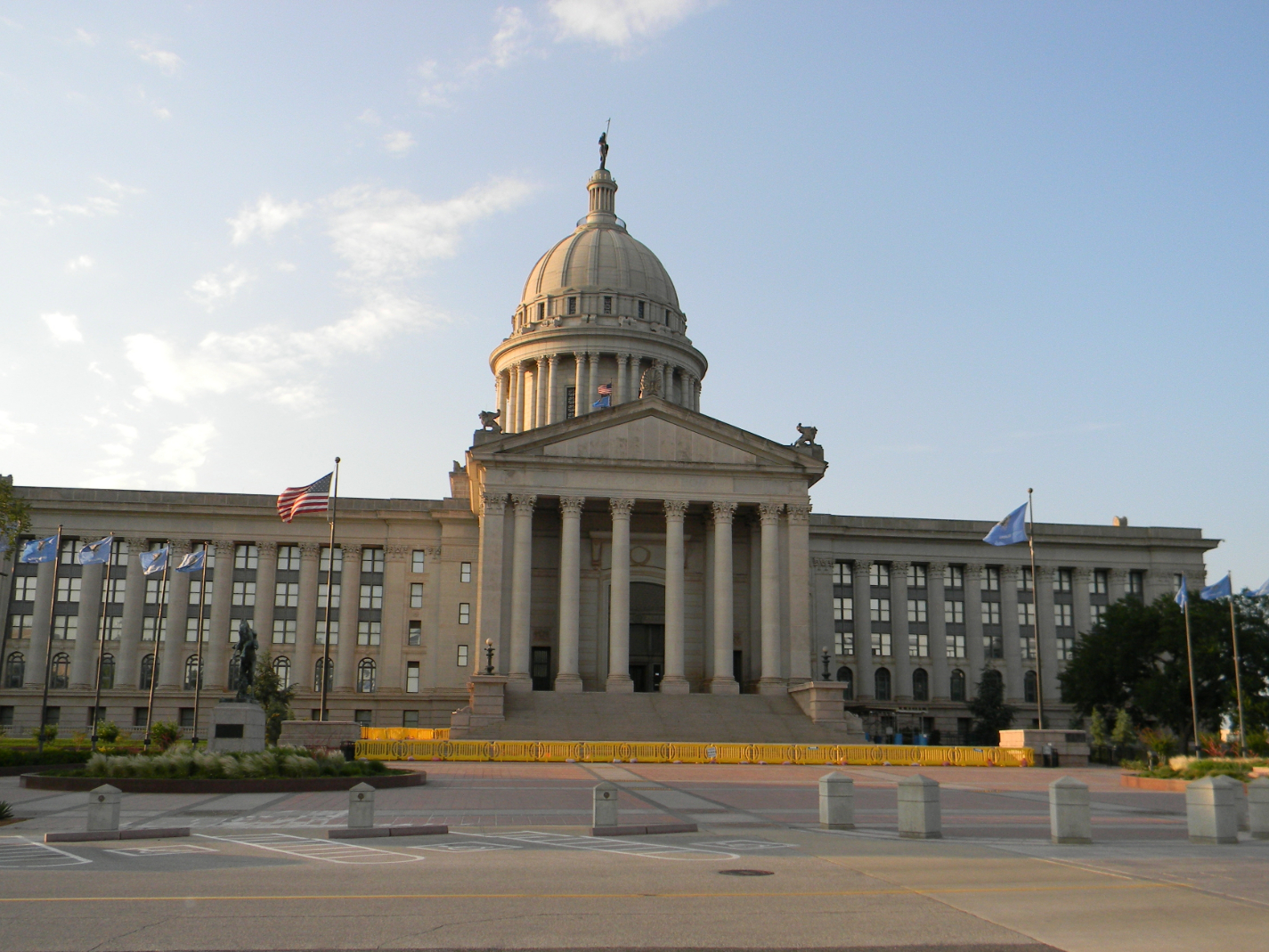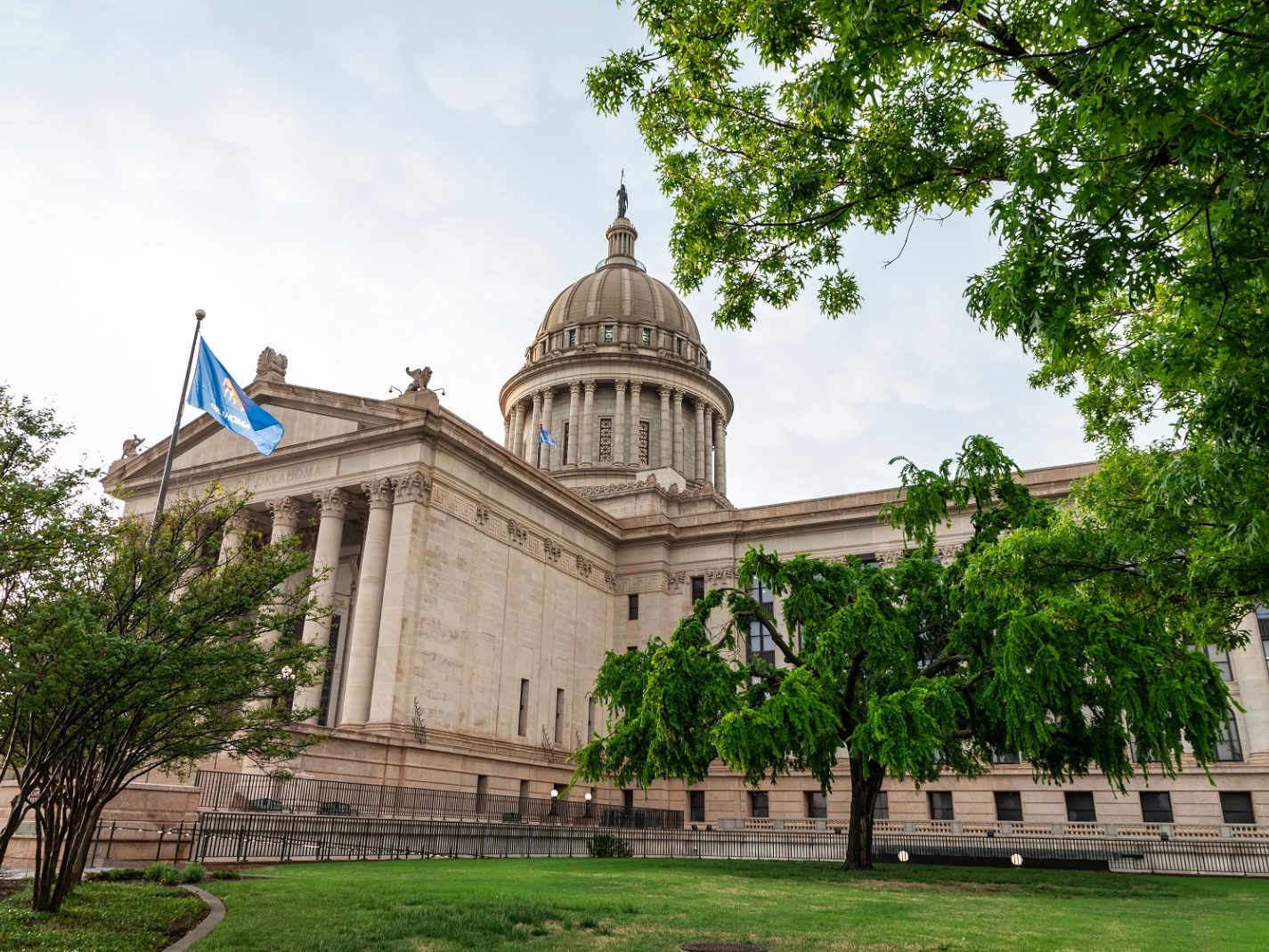Dr. Brian L. Maher,
Commissioner of Education
Nebraska Department of Education
P.O. Box 94987
Lincoln, NE 68509-4987
May 9, 2025
Dear Commissioner Maher,
The National Association of Scholars (NAS) and the Civics Alliance work to ensure that every state has academic standards that promote first-rate education and protect school children from political indoctrination. We promote reform of content standards in every state, along the lines modeled by the Civics Alliance’s American Birthright: The Civics Alliance’s Model K-12 Social Studies Standards,[1] and we have been asked by Nebraska citizens to comment on the Department of Education’s current Nebraska Social Studies Standards (2019), to help inform the Department as it begins the process of reviewing and revising these standards.[2] We conclude that the Standards require complete revision—and that this improvement should be conducted by recruiting an independent commission to redraft new social studies standards.
The Existing Standards: Complete Insufficiency
The Nebraska Social Studies Standards (hereafter Standards) have avoided the extreme politicization, unprofessional vocabulary, and ideologically extreme content that have degraded social studies standards in several states including Connecticut, Rhode Island, and Minnesota.[3] Unfortunately, the Standards have steered clear of most ideologically extreme content because they have steered clear of any content. The Thomas B. Fordham Institute in its The State of State Standards for Civics and U.S. History in 2021 (2021) gave Nebraska a D in Civics and a D minus in U.S. History.[4] In its words:
Nebraska’s civics and U.S. History standards are inadequate. In addition to containing little of substance—especially in history—their rigid organization inhibits the complete and logical presentation of content. A complete revision is recommended. … With its overbroad indicators and laundry lists of examples, Nebraska offers inadequate civics guidance and makes it hard to distinguish between essential and nonessential content. … [Civics] Organization is poor. … There is little detail, especially in high school. … Many of the “examples” are confusing, if not downright misleading. … Some essential content is missing. … Nebraska’s rigidly thematic [U.S. History] standards do not even attempt a substantive historical outline, stressing analysis over memorization yet doing almost nothing to help teachers and districts identify the actual history to be analyzed. … Nebraska’s standards largely fail to offer any substantive U.S. History outlining, leaving teachers and districts almost entirely without content guidance.
We concur with the Fordham Institute, and we would broaden this judgment to the entire Standards. It consists almost entirely of hollow “skills” prompts without substantive content, worsened slightly by muffled prompts toward politicized pedagogy.[5] We do not want to lengthen this comment unnecessarily, so we urge you to review the Fordham Institute’s 6 pages of detailed critique of Nebraska’s Standards.
We also believe that Nebraska only scored as well as it did on Fordham’s rankings because of its counterproductive commitments to action civics—commitments which the Fordham Institute shares, and which affect its rankings[6] We suspect that a ranking that takes “action civics”—vocational training in progressive activism for classroom civics education—as a negative would give Nebraska an F for both Civics and U.S. History.[7]
We understand that the Nebraska Department of Education does not want to micro-manage the curriculum of school districts and individual teachers, and we agree with that choice. Yet a state academic content standard, if it is be provided at all, should be a useful document. It should help new teachers who are unfamiliar with social studies content and will benefit from guidance about social studies content. It should help provide prompts for state and school district assessment. It should help professional development, curriculum frameworks, model lesson plans, and textbook creation. The Standards, unfortunately, are not useful for any of these purposes.
The Nebraska Department of Education should not attempt to revise these fundamentally flawed Standards. It should start from the beginning and create new social studies standards, along fundamentally different lines. Below we list our recommendations for what principles should guide the Department as it creates new social studies standards.
Principles to Guide Drafting New Social Studies Standards
Independent Drafting Commission.Nebraska Department of Education personnel produced the existing, fundamentally flawed standards. Nebraskans should not delegate the revision of these standards to the same people who produced standards according to a fundamentally misguided model. Nebraska Department of Education personnel, moreover, may be expected to follow the radical structure imposed by the National Council for the Social Studies (NCSS) and by like-minded organizations such as the American Institutes for Research (AIR). (See our discussion below.) Nebraskans realistically must expect that Department of Education personnel will reform Nebraska’s social studies standards at best half-heartedly. Nebraskans should make sure that their standards are drafted independently by civics education experts who will make a clean break from the previous Standards, the NCSS, and the AIR, and who believe in and know how to accomplish thoroughgoing reform of civics standards.We therefore recommend that the Department, in consultation with the Governor and the Legislature, appoint an independent commission, not staffed by Department personnel, to redraft Nebraska’s social studies standards.
End Dependence on NCSS Materials: Many flaws in the Nebraska’s Standards proceed from one general cause: the Standards unfortunately derive too much of their structure and emphases from the National Council for the Social Studies’ (NCSS) ideologically extreme definition of social studies,[8] as well as from the College, Career, and Civic Life (C3) Framework for Social Studies State Standards.[9] The C3 Framework in particular replaces content knowledge with insubstantial and opaque “inquiry”; replaces social studies pedagogy with identity politics ideologies such as Critical Race Theory; and inserts ideologically extreme activism pedagogies such as Action Civics.[10] The revised Standards should not be informed either by the NCSS’s ideologically extreme definition of social studies or by the NCSS’ C3 Framework.
Do Not Employ the American Institutes for Research: A major part of the Standards’ dependence on the C3 Framework, and its fundamentally flawed approach, probably derived from the Department’s decision to hire American Institutes for Research (AIR) to take part in Nebraska’s previous social studies standards revision process.[11] States that hire AIR to take part in their social studies standards revision process standardly produce social studies standards that recapitulate the flaws of the NCSS’ C3 Framework: insufficient content knowledge, extensive use of “inquiry” pedagogy, heavy use of “skills” instruction; action civics; and at least some identity-politics ideology influence on content.[12] All these consequences are the predictable results of hiring AIR. The Department’s decision to hire AIR was tantamount to a decision to adopt the ideologically extreme structure of the NCSS’ C3 Framework. The Department should not hire AIR, or in any way involve AIR, in any part of the creation or revision of its Standards.[13]
Revised Structure: The revised Standards should incorporate a thoroughly revised structure. Aspects of the revised structure should include:
Liberty and Documents of Liberty: The Standards should emphasize instruction in America’s foundational commitment to the ideal of liberty. The Standards should add to its four Disciplines (Civics, Economics, Geography, and History) Disciplines of Liberty[14] and Documents of Liberty. The Standards should incorporate throughout K-12 instruction a series of named documents that illustrate the Western and American commitment to the ideals and institutions of liberty into the Standards, including at least the 24 documents specified by Kentucky in KRS 158.196.[15] The series also should include a broader selection of documents illustrating the intellectual background of the Founding Documents and American history. (See Appendix 1: Recommended Historical Documents.) The Department also should publish a Documents of Liberty Reader, and provide lesson plans and professional development, to facilitate instruction in the Documents of Liberty.
Geography: The Standards throughout should focus on factual knowledge of the geography of Nebraska, the United States, and the world, and avoid material that prompts ideologically extreme activism (e.g., climate change activism or open borders activism).[16]
Patriotic Elementary School Education: Many social studies standards use a misguided pedagogy, which assumes that children should learn first about the community, then about the state, then about the nation. Advocates of this pedagogy underestimate the ability of young children to understand the symbols, the nature, and the virtues of America—and, in consequence, they fail to provide students the necessary early education in Americans’ common heritage of freedom. Florida’s excellent 2021 Revised Civics and Government Strand used a proper pedagogy to teach K-6 students about America,[17] and we have incorporated Florida’s patriotic emphasis into American Birthright. The revised standards should emphasize patriotic content, especially making sure to include it in K-2.
American History: The Standards should include material on America’s colonial history—the first 150 years of our nation’s history. It also should include substantial coverage of America’s and Nebraska’s common culture, integrated throughout its coverage of American and Nebraskan history. The history of common culture is the history of what unites Americans and Nebraskans, rather than what divides them. It also is the history of people enjoying themselves—their stories and their music—and students need to learn that history is more than a dour series of political and social problems and crises. Nebraska students should learn far more American cultural history, from Edgar Allan Poe to Tin Pan Alley to Georgia O’Keeffe.[18] Nebraska students also should learn more about Nebraska’s common culture, including its pioneer heritage, figures such as William Jennings Bryan and Willa Cather, and religious faith.
Western Civilization: The Standards should include a required Western Civilization sequence, consisting of spiraled instruction in Grades 3-5, Grades 6-8, and high school, which provides the coherent narrative of the ideals and institutions of liberty that formed America, as well as the histories of liberty, faith, science, and technology. The Standards would especially benefit from extended historical coverage of:
- the Renaissance rediscovery and elaboration of the concepts of liberty, individualism, republicanism, and tolerance;[19] and
- England’s history of liberty from Magna Carta to Henry VIII to John Wilkes, including common law, the growth of parliamentary power, the English Civil War, the Glorious Revolution, legal freedoms such as habeas corpus, and the expansion in England of a culture and society animated by the ideals of freedom.
This Western Civilization sequence should replace existing World History instruction.
World History: The Standards also should create a distinct World History sequence, which provides fuller coverage of Asian, African, and Latin American history.
Military, Religious, Economic, and Scientific History: Nebraska students cannot understand the true history of the West, America, or Nebraska if they do not learn full accounts of our wars, faiths, free markets, and scientific discoveries. The revised Standards should make central these fundamental themes of history.
Primary Sources: The Standards should integrate a large number of primary sources into K-12 instruction, especially Grades 8-12 instruction, such as are provided by American Birthright.
Content-Rich Factual Standards: The Standards should provide content-rich, factual social studies standards, such as American Birthright: The Civics Alliance’s Model K-12 Social Studies Standards and the social studies standards of Louisiana, South Dakota, and Virginia.[20] The factual material should provide sufficient material for state and local assessment, teacher preparation, textbook creation, and other educational purposes.
Reading and Writing Expectations: The Standards should have firm and clear expectations for reading and writing, which parents may use to hold their schools and their teachers accountable.
- The Standards should integrate concrete reading expectations, which build toward students capable by graduation from high school of reading an intellectually and stylistically sophisticated 200-page history book, to demonstrate that they are prepared for an undergraduate history course.
- The Standards should integrate concrete writing expectations, which build toward students capable by graduation from high school of writing an intellectually and stylistically sophisticated 5-page history paper, to demonstrate that they are prepared for an undergraduate history course.
Format and Style: The Standards should be presented in a straightforward list format of content-rich Standards, without Concepts and Practices, Sample Evidence of Learning, Disciplinary Clarifications, or any other complicating categories that are not written as standards and that impede comprehension of what the Standards actually mandate. Wherever possible, concrete details should be presented as “i.e.” rather than “e.g.”, to make clear that what is mentioned is meant to be taught and assessed. The Standards should be lucid, concrete, and precise throughout.
Minimize or Eliminate “Skills” and Inquiry-Based Pedagogy: “Skills” focus and “Inquiry-Based Pedagogy” replace classroom focus on what to learn (content knowledge) with classroom focus on how to learn and what questions to ask. The advocates of “Skills” and “Inquiry-Based Pedagogy” claim that content, skills, and inquiries complement one another. Indeed they should, and in pedagogies such as Core Knowledge, which emphasizes acquiring substantive knowledge as a foundation for acquiring complementary skills, they do. Pedagogies that emphasize “skills” and “inquiry” in practice generally result in classrooms where students ask questions but never learn what the answers actually are. “Skills” and “Inquiry-Based Pedagogy” are at best unproductive and usually counterproductive. Recommendation: The Department should include no “inquiry” pedagogy in the revised Standards, and instead frame its standards instead as specific content to be taught and learned. The Department should place any recommended pedagogies or skills in a separate Curriculum Framework, which should be made available for teachers, but not forced upon them by regulation or financial incentive. The Department also should eliminate both from the Standards and from every other part of its work all material referenced in “Instructional Shift I: Inquiry-Based Learning.”[21]
Remove Action Civics: Action civics repurposes civics instruction to ready students for public protest, emphasizes the defects of American society and the failures of American government, and diminishes attention to the virtues of America’s Constitutional order. It particularly uses the pedagogy of “service-learning” to substitute vocational training in progressive activism for classroom civics education.[22] The Standards should include no action civics, civic engagement, service-learning, or any other euphemism for the same activity. The Department also should eliminate both from the Standards and from every other part of its work all action-civics material referenced in “Instructional Shift II: Civic Education.”[23]
Depoliticize Vocabulary: The revised Standards should not use any ideologically extreme language, which distorts social studies instruction by word choice that embeds ideologically extreme arguments and suppresses pluralist debate. It should avoid using progressive vocabulary popular in education schools, including active citizens, acknowledging, civically engaged, culturally aware, decision-making skills, democracy (substituted for republic), democratic values/principles (substituted for American values/principles), diverse/diversity, engaged, enslaved, equity/equitable, evidence based, global, indigenous, inquiry practices, interact, justice-oriented citizenship, multicultural, oppression, public protests, and socially responsible. The Standards also should use “American” instead of “democratic” wherever education department personnel use democratic and democracy as shorthand for the broader complex of American values which include liberty, law, justice, civic virtue, natural law, a republican form of government, and democracy.
Depoliticize Content: The Standards should include no politicized distortions in social studies content.
Strategic Recommendations
We have provided the above recommendations for revision to the Standards, but we do not believe that social studies standards revision can or should be undertaken entirely by the Department. We make two strategic recommendations to the Department and to Nebraska policymakers.
Licensure Requirements and Professional Development: The Department also should update its licensure requirements and professional development to ensure that its teachers are equipped to teach curriculum that aligns with our suggested emphases.
Statutory Reform: The Department should ask state policymakers to enact laws that ensure proper social studies instruction in all Nebraska public K-12 schools.[24]
Conclusion
The Nebraska Department of Education’s Standards require fundamental overhaul. The Department should revise the Standards as we have recommended in this public comment. We suggest that the Department examine our model American Birthright social studies standards to help inform its revision of Nebraska’s social studies standards, but we also suggest that the Department examine the fine alternate models of Louisiana, South Dakota, and Virginia to help inform its revision.[25]
Appendix 1: Recommended Historical Documents
Founding Documents Intellectual Background
Magna Carta (1215)
Petition of Right (1628)
English Bill of Rights (1689)
Toleration Act (1689)
John Locke, Second Treatise of Civil Government (1690)
Montesquieu, The Spirit of Laws (1748)
United States Documents
Articles, Laws, and Orders of Virginia (1610)
Fundamental Orders of Connecticut (1639)
Massachusetts Body of Liberties (1641)
Pennsylvania Charter of Privileges (1701),
John Woolman, Some Considerations on the Keeping of Negroes (1754)
John Adams, Braintree Resolves (1765)
Common Sense (1776)
Virginia Declaration of Rights (1776)
Massachusetts Constitution and Declaration of Rights (1780)
Virginia Statute for Religious Freedom (1786)
Northwest Ordinance (1787)
Anti-Federalist Papers: Brutus No. 1 (1787)
The Federal Farmer, Letter III (1787)
The Federalist Nos. 9 (Alexander Hamilton), 39 (James Madison), and 78 (Alexander Hamilton) (1787-88)
Benjamin Franklin, The Autobiography of Benjamin Franklin (1791)
Thomas Jefferson, First Inaugural Address (1801)
Alexis de Tocqueville, Democracy in America, Volume I (1835) and Volume II (1839)
Abraham Lincoln, “Speech on the Dred Scott Decision” (1857)
Abraham Lincoln, “House Divided” speech (1858)
Abraham Lincoln, Second Inaugural Address (1865)
Niagara Movement Declaration of Principles (1905)
Theodore Roosevelt, “The Man with the Muck-rake,” speech (1906)
Woodrow Wilson, “Peace Without Victory,” speech (1917)
Schenck v. United States (1919)
Justice Oliver Wendell Holmes’ dissenting opinion in the case of Abrams v. United States (1919)
Herbert Hoover, Rugged Individualism (1928)
Franklin Delano Roosevelt, First Inaugural Address (1933)
Franklin Delano Roosevelt, “Four Freedoms” speech (1941
Justice Robert M. Jackson’s opinion for the Supreme Court in West Virginia State Board of Education v. Barnette (1943)
Learned Hand, The Spirit of Liberty (1944)
The Truman Doctrine (1947)
George Kennan, “The Sources of Soviet Conduct” (1947)
John F. Kennedy, Inaugural Address (1961)
Ronald Reagan, Berlin Wall Speech (1987)
Ronald Reagan, Speech at Moscow State University (1988)
George W. Bush, Second Inaugural Address (2005)
District of Columbia v. Heller (2008)
Dobbs v. Jackson Women’s Health Organization (2022)



